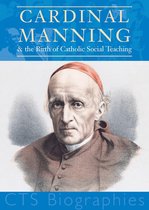Cardinal Richelieu Ebook Tooltip Ebooks kunnen worden gelezen op uw computer en op daarvoor geschikte e-readers.
- Engels
- E-book
- 9781518351617
- 02 april 2018
- Adobe ePub
Samenvatting
RICHELIEU, although a bishop and a cardinal, was not a great theologian, nor was he in the narrowest sense a great churchman. Many of his contemporaries, endowed with far less dignity and authority, yet exercised an incomparably more distinct and vital influence on the religious life of his time than he can claim to have done. Still his career is coincident with a very important epoch in the history of the French Church, and both in his actions and in his Memoirs he shows a very keen interest in ecclesiastical matters, and a very vivid sense of their importance to the order and wellbeing of the state. Possibly his interest was rather that of the politician than of the ecclesiastic, but it was none the less real, nor was the influence which he could not fail to possess diminished because he himself was lacking in spiritual insight or because his motives were rather secular than religious. These considerations make it impossible, even in a brief sketch like the present, to dismiss his relations with the Church in a brief and perfunctory paragraph.
The sixteenth century had witnessed two of the greatest religious movements in history. The first was the Reformation, by which a number of states, mostly in Northern Europe, threw off all dependence upon Rome, and adopted religious doctrines and organisation more or less at variance with those which had hitherto prevailed throughout Western Christendom. By the second or Counter Reformation, the Roman Catholic Church profited by the lessons it had received, reformed the abuses which had provoked discontent and rebellion, and strengthened its internal organisation in order not only to prevent further defections, but also to recover some of the ground that had been lost. This reforming movement, which was immensely stimulated by the efforts of the Jesuit order, found its final expression in the decrees of the Council of Trent. But although France was represented at Trent, and although the doctrinal definitions of the council were welcomed, yet those decrees which touched the constitution of the Church and restored discipline were never accepted or promulgated in France. There were two primary motives for this repudiation of the chief measures of reform. The crown contended that the conciliar decrees diminished the authority and patronage conferred upon the kings by the Concordat of 1516. The Parliament of Paris complained that they would destroy the liberties of the Gallican Church, which had always been dear to the official classes since their first definition in the Pragmatic Sanction of Bourges in 1438...
Productspecificaties
Inhoud
- Taal
- en
- Bindwijze
- E-book
- Oorspronkelijke releasedatum
- 02 april 2018
- Ebook Formaat
- Adobe ePub
Betrokkenen
- Hoofdauteur
- Richard Lodge
Lees mogelijkheden
- Lees dit ebook op
- Android (smartphone en tablet) | Kobo e-reader | Desktop (Mac en Windows) | iOS (smartphone en tablet) | Windows (smartphone en tablet)
Overige kenmerken
- Studieboek
- Nee
EAN
- EAN
- 9781518351617
Je vindt dit artikel in
- Taal
- Engels
- Boek, ebook of luisterboek?
- Ebook
- Beschikbaar in Kobo Plus
- Beschikbaar in Kobo Plus
- Beschikbaarheid
- Leverbaar
- E-book is direct beschikbaar na aankoop
- E-books lezen is voordelig
- Dag en nacht klantenservice
- Veilig betalen
Alle bindwijzen en edities (3)
Rapporteer dit artikel
Je wilt melding doen van illegale inhoud over dit artikel:
- Ik wil melding doen als klant
- Ik wil melding doen als autoriteit of trusted flagger
- Ik wil melding doen als partner
- Ik wil melding doen als merkhouder
Geen klant, autoriteit, trusted flagger, merkhouder of partner? Gebruik dan onderstaande link om melding te doen.











